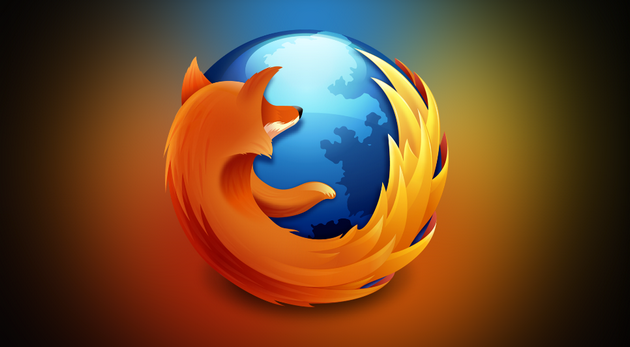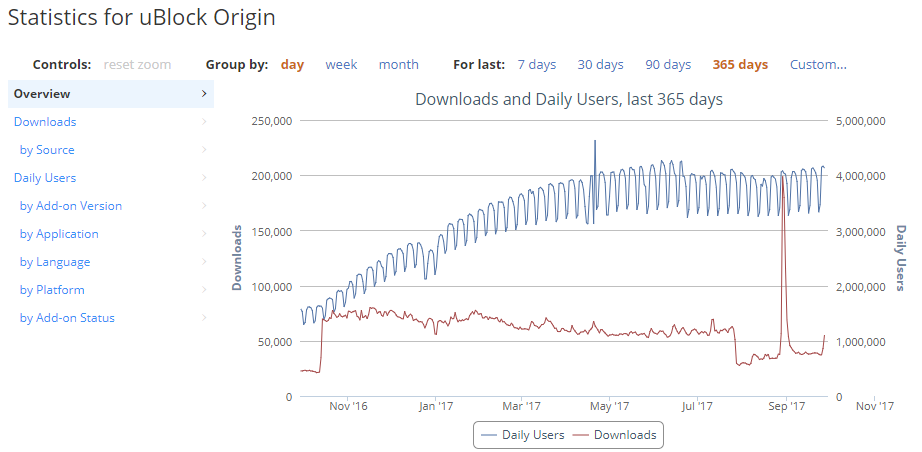Last Updated on November 17, 2019 by Mathew Diekhake
Never has writing been so cool and never has journalism been in so much trouble.
Back in 2011, when I first started blogging, I hadn’t heard of the word “blog” before. I was studying IT at the time and needed to find part-time work in a place where there were no jobs, so naturally, I decided to try looking online for anything that was going.

It turns out there was this thing called tech blogging that people were doing. It was different from what I had normally known of the web which was just sporting sites and the beginning of the social media boom. I had no idea what these tech bloggers were writing about, it all just looked very foreign to me, but I knew I wanted in. Sites like Mashable with banner advertisements surrounding the content that was rolling out every day, filled with numbers and digits that I knew nothing about made the formula of what was happening clear enough: you write stuff, people view it, and you earn ad revenue.
I had never thought of myself as a writer before, but I was pretty sure I could do it—well I knew I could sort of do it, I did once write a girlfriends brothers short story assignment for him after all, and my girlfriend was an A-grade English student and she thought it was wonderful. That’s all the confidence one needs.
After writing online for about a year while finishing my studies, it became apparent that blogging was getting more popular. Not so much from other people around me realizing what the word blogging meant, but just the sheer amount of new websites that were causing us headaches and adding more competition to our traffic requirements.
Once 2013 rolled around blogging officially was a household name and by 2014 well who didn’t have a blog then?
But by that stage my passion was already well and truly with writing stuff online and I wasn’t going to go away easily. I decided I’d start working seven days a week and typing whatever I could in between hairdryers, TVs, washing machines, dishes, fathers deciding to leave the bedroom and start snoring on the couch at 4 am, and whatever else in between that got in my way. I knew my IQ probably wasn’t up there with Pynchon’s but I had learned a lot about my field and had the knowledge to rival the best of them and my work ethic was good. Plus as long as your work is as good or better than sites which are getting enough traffic for this blogging thing to be a job then what reason is there for you to quit?
As the years went on things didn’t get any easier, nor did they stay stagnant. By 2016 there was a new challenge that was threatening to take my glory away and potentially force me out into the real world and away from doing what I wanted to do which was writing. It was called ad block.
Well, fuck. I didn’t see that coming.
Our revenue per thousand views started dropping: 10%, 20%, 30%, 40% 45%—apparently that writing on tech just so happened to be targeting the audience who knew how to block advertisements the most.
Some adroit folk had developed this thing that blocked advertisements on the web so people could do tremendous things like save minuscule amounts of data and not have to look at banners in sidebars and surrounding content. They could do all that just by clicking a button, and the only downside is that the websites revenue is taken away entirely. Sounds like a pretty sweet deal right? Who wouldn’t want to join in?
As it turns out, nearly 200,000 people per day started joining in at one point, that’s how often Adblock Plus—the world’s most popular ad blocking extension—was being installed on computer web browsers.
There is a lot of good on the web and there is a lot of bad. Being able to acquire vast amounts of knowledge and often for free is one of the upsides. Having to read the comment sections and realize how stupid the average Joe is is one of the downsides. Apparently, the average opinion on ads is something like this: I have the freedom to choose to block ads if I want, if your publication can’t handle it, then go and do something else.
Going and doing something else is all well and good but it forgets one thing: It doesn’t mean the content is being created anymore. As much as they might not want to admit it, most of the people choosing to block the ads on the internet with ad blockers heavily rely on the websites that can only survive by using the advertisements. The web is still managing to stay afloat with the millions of people who have started using ad block already, but only just. If the trend continued many of the independent sites would hut down, stop creating content, go and do something else.
Perhaps that’s when these average Joes would then choose to turn ad blocker off: when they stop getting what they need and not a moment sooner. But for this game to work, they’ll need to be a bit smarter than that. When people leave and go and do other things, they won’t be dropping those other things and coming back. They’ll be gone, gone for good.
We no longer allow people to block our ads and read our content. If they are willing to see us crash and burn as a publication, then they can go and get there content from elsewhere. We feel pretty stronger about this because we are bright enough to see that choosing to block all the web advertisements and then whitelist the occasional site that you might visit regularly is not the answer. The reason it isn’t the answer is that far from the majority of websites display too many ads for them to become a problem. Most of the issues come from adult websites and torrent websites. We sit in front of computers all day, and we know advertisements like few others do, we can see the problems. They aren’t everywhere or anywhere even close.
Being able to use ad blockers or not was never about civil liberties, it was about morality. So it comes with great pleasure to be able to say that AdBlock Plus has lost millions of users over the last 12 months. After recording an average of 21.4 million active users on September 29th, 2016 that number has dropped to 15.4 million on September 27th, 2017. Keeping in mind that these statistics are for the Firefox web browser only and don’t account for the tens of millions using it on Google Chrome or other browsers, but the drop-off on Firefox is a significant one and a step in the right direction for the survival of the internet—yay for us, and yay for you, even if you don’t know it yet.
Before getting too excited, there could be some reasons for the dropoff of users, that doesn’t have anything to do with people’s realization that the web can only survive if they allow for banner ads. For example, it’s possible that Firefox is losing users to other web browsers and people could also be jumping ship to other ad blocking plugins since there are many out there.
One of the new ad blocking plugins that has gained users over the past 12 months is uBlock. uBlock Origin had about 1.5 million daily users on September 29th, 2016, while on September 27th, 2017, those numbers jumped up to 4.1 million daily users—almost accounting for the Adblock Plus numbers.
There are many people out there who admit to switching from Adblock Plus to uBlock once they realized that the Adblock Plus owners were accepting money to allow some advertisements to passing through the filters—Taboola out of New York being the major ad network willing to pay the extortion fee by Adblock Plus to let them through. Google allegedly had started to do it too, but only with some of their ads and not all.
It’s probably fair to say that at least a million and maybe millions more did make the switch from Adblock Plus to uBlock for whatever reason, but also important to note is that uBlock usage has dropped substantially in recent months.
Some torrent sites are no longer available to be viewed in many countries due to court orders blocking them, and there’s no doubt in our minds that torrent sites had a lot to do with people choosing to block ads from all publishers because the torrent sites they visited were riddled with ads, and often nasty files like adware and malware. There’s also the possibility that people don’t dislike ads as much when they update their computers because those new PCs come with newer hardware. Older computers would struggle to run the ads that were being asked of them whereas a more modern processor can easily handle banner ads without so much as a fan ever needing to come on or a CPU be put under any stress at all.
With a bit of luck, those two factors are at least partially responsible for the decline in people choosing to block ads. Only time will tell if people are willing to allow the web to survive and be willing to look at graphical content along with their words.
You might also be interested in:
- Announcing Opera 48 with Screen Snapshot Tool, Currency, Time Zone Converters and More
- Windows Server Insider Preview Build 16267 Announced
- Xiaomi Working with Google on Next Android One Phones
- Android O Official Release Date and Name Revealed
You can subscribe to our RSS, follow us on Twitter or like our Facebook page to keep on consuming more tech.



January 23, 2019 @ 03:18
I used to always have Adblock Plus on my computers when I wanted to be using ad blocking software (which wasn’t always but I had a good reason to occasionally turn it on). It didn’t take me long to realize that it was better than the standard Adblock (without the Plus) which wasn’t a great experience.
However, in more recent times I’ve shifted away from Ad block Plus and now use Ublock Origin. Ad Block started getting in shady deals and allowing some advertisements to show while blocking most of the rest. So basically I was a witness to extortion which rubbed me the wrong way. But Adblock Plus also starting running heavy on my machine. I would hear the fan going to work far often than I should, and arguably more than what the ads would’ve done anyway.
Not being able to afford subscriptions to American sports online, I used to watch online streams that I knew were illegal and so they always had low-quality ads being shown. Not wanting to risk my computer’s health, I installed ad blocking extensions instead. Now, these ads that were shown from such low-quality sites would really make my fan noise kick in — pop-ups, pop-unders, links going to other sites and back again, the works.
Ublock Origin I found was far better at blocking ads and keeping my hardware from working. I never heard the fan, my computer was never under any stress. And I didn’t notice any extortion tactics either.